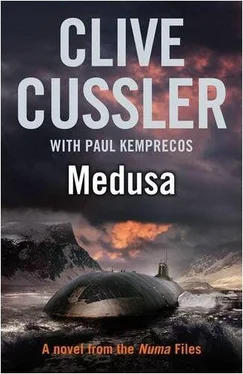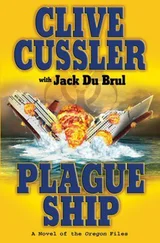Dr. Lee cleared her throat and looked out at the audience. Some of the people waiting for her to speak were aware of and possibly responsible for her exile, but she swallowed her bitterness.
“To paraphrase the American writer Mark Twain, rumors of my professional demise have been greatly exaggerated,” she said with a straight face.
She let the ripple of laughter roll over her.
“I must admit, I come to you humbled,” she continued. “Since I established my rural practice, great strides have been made in the world of epidemiology. I am impressed at the way the nations of the world have come together to fight this new outbreak. I am proud of the role my country has taken in leading the effort.”
She smiled at the applause. She was learning to play the game. Those wanting angry denunciations of past policy would be disappointed.
“At the same time, I must warn against complacency. Any epidemic contains the seeds of a pandemic. These pandemics have come to us in the past, and human beings have always come out the worse for it.”
She talked about the great plagues in history, starting with the first recorded pandemic that struck Athens during its war with Sparta. The Roman pandemic of 251 A.D. had killed five thousand people a day, the Constantinople epidemic of 452 ten thousand a day. Around twenty-five million died in Europe of the Black Death during the 1340s, and forty to fifty million worldwide in the great influenza epidemic of 1918. She repeated her warning against complacency, and repeated how pleased she was at the multinational response to the current epidemic.
Dr. Lee was stunned at the applause that her presentation received. Her acceptance back into the medical community after years of exile was unexpected, and she was overcome with emotion. She left the stage, but instead of returning to her seat she strode to the exit. Tears welled in her eyes, and she needed to compose herself. She walked along the corridor, not sure where she was going.
Someone called her name. It was Dr. Huang, hurrying to catch up to her.
“That was a fine presentation,” he said, breathless from the chase.
“Thank you, Dr. Huang. I’ll return to the auditorium in a few minutes. It was quite an emotional experience for me, as you can imagine. But it was reassuring to hear that a worldwide pandemic is unlikely.”
“On the contrary, Dr. Lee, a pandemic is a certainty. And it will kill millions before it runs out of victims.”
Song Lee glanced at the door to the auditorium. “That’s not what I heard in there. Everyone seemed quite optimistic that this epidemic can be contained.”
“That’s because the speakers don’t know all the facts.”
“What are the facts, Dr. Huang? Why is this SARS epidemic any different from the last?”
“There is something I must tell you . . . this business about SARS . . . well, it’s a fraud.”
Lee glared at Huang.
“What are you saying?”
“The epidemic we are concerned about is caused by another pathogen, a variation of the influenza virus.”
“Why didn’t you tell me this? Why did you let me blather on about SARS?”
“It pained me to do so, but the presentation was intended as a smoke screen to hide the fact that the pathogen we are dealing with is much more dangerous than SARS.”
“The experts speaking in the auditorium may beg to differ . . .”
“That’s because we have been feeding them misleading information. When they have asked for specimens of the strain to help with their research, we have given them the old SARS virus. We are trying to prevent a panic.”
She felt a dryness in her mouth.
“What is this new pathogen?”
“It is a mutated form of the old influenza strain. It spreads faster, and the mortality rate is much higher. Death comes more quickly and more often. It’s incredibly adaptable.”
Dr. Lee stared in disbelief. “Hasn’t this country learned its lesson about secrecy?”
“We have learned it very well,” Dr. Huang said. “China is working with the United States. We and the Americans have agreed to keep the existence of this new pathogen a secret for now.”
“We saw before that delay in releasing information costs lives,” Lee said.
“We also saw forced quarantine,” Huang said. “Hospitals shuttered, travel and commerce interrupted, people attacked in Chinatowns around the world. We can’t tell the truth now. There’s no way to stop this pathogen until we’ve developed a vaccine.”
“You’re sure of this?”
“Don’t take my word for it. The Americans have far more sophisticated computers. They have created models suggesting we can temporarily contain pockets of the disease, but it will eventually break out and we will have a worldwide pandemic.”
“Why didn’t you tell me all this back in the province?” Lee asked.
“I was afraid you might still think I had betrayed you before and wouldn’t believe me,” Huang said.
“Why should I believe you now?”
“Because I am telling the truth . . . I swear it.”
Dr. Lee was confused and angry, but there was no doubt in her mind that Dr. Huang was being forthright.
“You mentioned a vaccine,” she said.
“A number of labs are working on it,” he said. “The most promising drug is being developed in the U.S. at the Bonefish Key lab in Florida. They believe a substance derived from ocean biomedicine will produce a vaccine that will stop this pathogen.”
“You are saying that one lab has the only viable preventative?” Lee almost laughed at the absurdity despite the direness of the situation.
The auditorium doors opened, and people were starting to spill into the corridor. Huang lowered his voice.
“It’s still in development,” he said, “but, yes, our hopes are high. It might go even faster if you were there as the representative from the People’s Republic.”
“The government wants me to go to Bonefish Key?” she said.
“It seems that I have been ‘rehabilitated.’ I’m willing to do anything I can. But you are putting everything on this one vaccine. What if it doesn’t work?”
A haunted look came to Huang’s eyes, and his voice dropped to a whisper.
“Then only divine intervention can help us.”
THE INFLUENZA EPIDEMIC OF 1918 APPEARED SUDDENLY, striking the world as it was trying to stitch itself back together after the devastating war that had ripped it apart. The epidemic raged through Spain, killing eight million people, and for that accomplishment was dubbed the Spanish flu, though it hit many other countries including America as well. Within months, it had spread around the world. There was no known cure. Victims would sicken in the morning, breaking out in the telltale mahogany-colored rash within hours, and die before nightfall. Millions died; a billion were infected. Before it petered out in 1919, influenza had killed more people than five years of brutal war had. It was worse than the Black Death.
The grim statistics raced through Dr. Song Lee’s mind as she covered the last leg before setting foot on Bonefish Key. She had flown into Fort Myers and caught a limo to the Pine Island Marina, where she met a colorful local character named Dooley Greene. He had taken her on his boat through the mangroves to the island. A man was waiting on the dock to greet her.
“Hi, Dr. Lee,” the man said, extending his hand. “My name is Max Kane. Welcome to Fantasy Island. I’m the director of this little speck of paradise.”
In his faded Hawaiian shirt and tattered denim shorts, Kane looked more like a beach bum than the respected ocean microbiologist whose impressive resume she had perused. A Chinese scientist of his stature would not have been caught dead without his white lab coat.
Читать дальше












